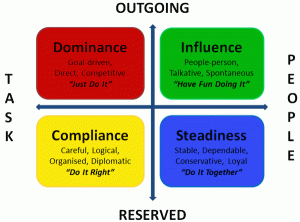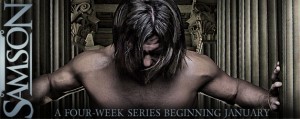
God on Film – Hercules: How To Be Strong
Sycamore Creek Church
July 27/28, 2014
Tom Arthur
Peace Friends!
Today we continue in our summer series, God on Film. We’ve been looking at a different summer blockbuster each week and exploring what the Bible says about a theme from that movie. Today we look at the movie Hercules.
Most of us are familiar with who Hercules is. We know he’s strong, but most of us don’t know many details about Hercules’ life. Hercules is strong because he is the son of the god, Zeus, and the mortal, Alcmene. In a fit of madness brought on by Hera, Zeus’ wife and Hercules’ step-mother, Hercules kills his wife and six sons. He then seeks penance to atone for his actions. He is given twelve labors by king Eurystheus, and we find that there is nothing Hercules can’t do. His strength allows him to do whatever he wants, slaying and capturing fierce and fast wild animals and monsters: the Nemean Lion, Lernaean hydra, Golden Hind of Artemis, the Erymanthian Boar, all the way to Cerberus, the hound of hell who guards the entrance so no one gets in or out. In the end because of his great strength and courage, Hercules is awarded immortality by the gods.
Here’s a news flash for us all today: None of us are Hercules. Unlike Hercules, we can’t do anything we want. We can’t gain immortality by our strength and courage. So what do we do? Today I want to talk about two ways that each of us can be strong.
1. Use your unique strengths to build God’s kingdom
Each of us has a unique set of gifts, talents, and passions that makes us unique and unlike anyone else. Paul, the first missionary of the church, wrote about these calling them spiritual gifts. In his letter to the church at Corinth he wrote:
Are we all apostles? Are we all prophets? Are we all teachers? Do we all have the power to do miracles? Do we all have the gift of healing? Do we all have the ability to speak in unknown languages? Do we all have the ability to interpret unknown languages? Of course not!
~1 Corinthians 12:29-30 NLT
Each one of us is given a unique talent to use to build God’s kingdom here on Earth. Some of those gifts may seem more grand or important than others. It may seem like the pastor or the one who speaks and leads has the most important role in the church, but this isn’t true. I refer to the media team as my co-preachers. I can’t do what I do up front without them doing what they do behind the scenes (And if they do what they do well, then no one even notices them!). So Paul says:
In fact, some parts of the body that seem weakest and least important are actually the most necessary.
~1 Corinthians 12:22 NLT
This reminds me of the Jewish morning prayer that I came across sometime ago in a Jewish prayer book. I’ve shared it before but this prayer just never gets old!
Blessed are you, O Lord, King of the Universe, who formed humankind with wisdom, and created in them many orifices and passages. It is revealed and known before your throne of glory, that if one of them were open [that should be shut], or one of them were shut [that should be open], then it would be impossible to exist and to stand before you. Blessed are you, O Lord, Healer of all flesh, who does wondrously.
Paul lists several gifts in his first letter to the Corinthians but he also lists gifts in two other places: Romans 12 & Ephesians 4. I don’t think Paul was trying to be exhaustive in his list but was trying to give us a general direction about how the church works together building God’s Kingdom by relying upon the strengths of each one of us.
If you want to get a better perspective on your own strengths there are several ways you can do that. We offer a free online assessment tool called assessme.org. If you paid for it yourself it would cost you $15, but we offer it to your free. Follow this link and it will take you about twenty minutes to fill out four inventories: http://www.assessme.org/2364.aspx. You’ll be given some tips on how to use those strengths that God has given you. You’ll also be in our database so that when we’re looking for someone for a unique volunteer opportunity that requires your strengths, we’ll know that you would really thrive in that setting.
Another tool that I and the staff have found helpful lately in understanding our strengths is the DiSC personality profile. Each of the letters stand for one of four different personality tendencies:
D – Dominance
I – Influence
S – Steadiness
C – Compliance
These four different personality traits follow along two different axis: Outoing vs. Reserved oriented and People vs. Task oriented. Here’s a helpful picture to help you understand:

Jeremy and I recently took an online version of the DiSC that created a comparison profile between the two of us. Jeremy’s primary personality trait is an “I” or influencer. His secondary trait is a “S” or steadiness. I am the exact opposite. My primary trait is “D” or “dominance” and secondary trait is “C” or Compliance. Here’s the cool thing about Jeremy and me: we compliment each other really well. Our strengths walk side by side really well. Jeremy is outgoing; Tom is private. Jeremy is energetic; Tom is calm. Jeremy is tactful; Tom is frank. Jeremy and Tom are both strong-willed rather than accommodating. Jeremy and Tom are both skeptical rather than accepting. And lastly Jeremy and Tom are both driven rather than patient.
Another tool that we’ve found helpful lately in understanding our strengths is Go Put Your Strengths to Work by Marcus Buckingham. Buckingham describes a strength as something that makes you feel strong. The only person who can know your strengths then is you. He says the key to lasting impact and success in whatever you are doing is to play to your strengths. Here are the strength statements that Jeremy and I both came up with:
Tom Strength Statements:
- I feel strong when I spend time guiding, coaching, mentoring, brainstorming with competent, creative, and missional leaders (at SCC and elsewhere) for a better future for the church and seeing them put into practice our dreaming and visioning to develop successful programs that reach new people in a variety of ways.
- I feel strong when I create or spend time in environments that challenge me intellectually and philosophically with other people who are deeply interested in the same topic (reading, workshops, education, discussion groups, etc.).
- I feel strong when I have time to “breathe” (space and time) to accomplish the small things that add up.
Jeremy Strength Statements
- I feel strong when making inspiring and excellent music with other competent musicians when given the time to prepare and be creative.
- I feel strong when fostering/deepening existing and new friendships with those related to the ministry of Sycamore Creek Church in informal settings.
- I feel strong when following a leader I trust to motivate and encourage a competent, committed, and motivated team.
- I feel strong when executing plans that result in successful outcomes (i.e. retreats, worship services, off site gatherings, rehearsals, etc.).
What are your strengths? How can God use those to build God’s Kingdom right here on Earth? Take some time to pray about these strengths and give them up to God for God to use.
2. Let your weaknesses drive you to rely on God’s strength
So strengths are just one side of the coin. The other side is our weaknesses. You might think that there’s no way for weaknesses to make you strong, but you would be wrong. Paul not only talks about strengths but he also talks about how weaknesses can make each of us strong. In his second letter to the church at Corinth he says:
I will boast only about my weaknesses. If I wanted to boast, I would be no fool in doing so, because I would be telling the truth. But I won’t do it, because I don’t want anyone to give me credit beyond what they can see in my life or hear in my message, even though I have received such wonderful revelations from God. So to keep me from becoming proud, I was given a thorn in my flesh, a messenger from Satan to torment me and keep me from becoming proud.
Three different times I begged the Lord to take it away. Each time he said, “My grace is all you need. My power works best in weakness.” So now I am glad to boast about my weaknesses, so that the power of Christ can work through me. That’s why I take pleasure in my weaknesses, and in the insults, hardships, persecutions, and troubles that I suffer for Christ. For when I am weak, then I am strong.
~2 Corinthians 12:5-10 NLT
Here’s an important truth we learn from Paul: you can’t get rid of all your weaknesses. He says that “three different times I begged the Lord to take it away” but God wouldn’t do it. Sometimes weaknesses are a matter of maturity. They will go away as you mature. Sometimes our weaknesses are a matter of context. They will go away as the context changes. But sometimes our weaknesses are a matter of our humanity. They will never go away.
Your weaknesses do two things. First, your weaknesses drive you to use your strengths. You can’t be someone you’re not. Some of us are 5’3”, and we’re trying to play center under the basket. Others of us are 6’11”, and we’re trying to play point guard. If you’re 5’3” get out on the perimeter. If you’re 6’11”, get under the basket.
Second, our weaknesses drive us to rely upon God. Paul says, “So now I am glad to boast about my weaknesses.” Here’s the Achilles heel of strengths. Strength breeds pride, and pride drives us away from God. Pride is competitive. C.S. Lewis describes pride in this way:
Pride gets no pleasure out of having something, only out of having more of it than the next man. We say that people are proud of being rich, or clever, or good-looking, but they are not. They are proud of being richer, or cleverer, or better-looking than others…It is the comparison that makes you proud: the pleasure of being above the rest.
~C.S. Lewis, Mere Christianity
Søren Kierkegaard, the 19th century philosopher and Christian says:
The proud person always wants to do the right thing, the great thing. But because he wants to do it in his own strength, he is fighting not with man, but with God.
~Søren Kierkegaard
I think that the real crux of pride is that it is based on a lie. Pride is not telling the truth about yourself. It is an “inordinate and unreasonable self-esteem” (Evangelical Dictionary of Theology).
While strength tends to breed pride, weakness tends to breed humility, and humility is true and lasting strength. Whereas pride is telling a lie about yourself, humility is true strength because humility is telling the truth about yourself. Paul says, “If I wanted to boast, I would be no fool in doing so, because I would be telling the truth.” Paul knows who he is, but he chooses not to boast about it because he knows it would breed pride and drive him away from God. Augustine, a 4th century church leader, says, “If you asked me what is the first precept of the Christian religion I will answer, first, second and third, humility.” Humility is having an appropriate awareness of your limitations in body, mind and spirit or knowing your physical, mental, and spiritual limitations.
Humility has three directions. We are humble in relation to God. The humble person knows that she is totally dependent upon God. We are humble in relation to others. The humble person knows that he is here to serve others rather than be served. And we are humble in relation to the self. The humble person knows that he is wounded, guilty, and in captivity and in need of healing, forgiveness, and rescue. In all three of these areas we are unable to save ourselves. The humble person knows this. Paul hears from God that God’s “grace is all you need.”
All of us have a sense that the world isn’t quite like it’s supposed to be. The Christian knows that the world was created for good by God. But pride led us to depend upon ourselves and focus inward. In the process the world was damaged by evil. God saw the state of the world and had compassion on it. He entered into the world in his son, Jesus Christ, to heal, forgive, and rescue the world. He created a community that would have God’s resources to do these things. We join that community when we ask Jesus to forgive us and lead us. Then we join that community and are sent out into the world to accomplish that same mission: to heal, forgive, and rescue the world with the strengths that God has given each of us and relying upon God all the way. You might think that we could do all this without Jesus, God, or God’s community, the church. But relying upon ourselves was what got us into this mess in the first place. That’s why our weaknesses are so important. They drive us to rely upon God and God alone.
Take some time to consider your weaknesses and lift them up to God in prayer. Here is a prayer that might be helpful to you today:
We thank you, God, also for those disappointments and failures that lead us to acknowledge our dependence on you alone.
~Book of Common Prayer





Recent Comments